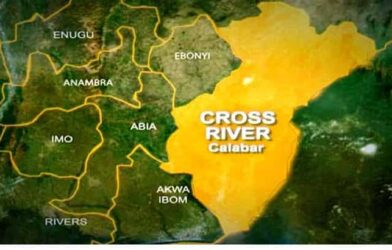On June 27th, Immigration Minister Sean Fraser announced measures that Immigration, Refugees and Citizenship Canada (IRCC) will be implementing to attract global tech talent to Canada.
These measures are referred to as Canada’s Tech Talent Strategy.
These tech measures include:
- New innovation stream under the International Mobility Program (IMP)
- Attracting digital nomads
- Improving labour mobility in North America by creating a streamlined work permit for H1-B speciality occupation visa holders
- Improvements to existing tech programs such as the Global Skills Strategy and the Start-up Visa
New innovation stream under the IMP
IRCC plans to develop a new innovation stream under the IMP to attract highly talented tech individuals, in order to deal with the labor shortages in key tech occupations and broaden Canada’s talent base.
The expected launch is to be by the end of 2023. The stream will be exempt from the Labour Market Impact Assessment (LMIA) process which will help employers and workers to support Canada’s priorities for the tech industry.
- Employer-specific work permits for up to five years for workers destined to work for a company identified by the Government of Canada as contributing to the industrial innovation goal
- Open work permits for up to five years for highly skilled workers in select in-demand occupations
Attracting digital nomads
IRCC also plans to promote Canada as a destination for digital nomads, by collaborating with private and public partners to determine if additional policies to attract digital nomads would be beneficial to Canada.
Improvements to existing tech programs
IRCC is improving Canada’s existing programs that can benefit workers in high-skilled tech occupations.
The Global Skills Strategy is designed to help Canadian employers seek quick access to highly skilled foreign talent. Processing times for the Global Skills Strategy work permit applications are back to normal processing times from before the pandemic. In addition, Employment and Social Development Canada (ESDC) is meeting its two-week standard for processing Global Talent Stream LMIAs and IRCC is meeting the two-week standard for work permit applications.
More spots were allocated under this program as a step toward addressing the lengthy wait times for applicants. In addition, this means that targets have tripled the number of permanent residents expected in the Federal Business category in 2023 and expected to increase in 2024 and 2025.
Recognizing the long application wait times due to the interest in the SUV program, IRCC is changing the temporary work permit option for SUV applicants and will allow them to apply for an open work permit of up to three years, rather than a one-year work permit that limits them to work solely for their own start-up.
The work permit will be available to each member of the entrepreneurial team, in comparison to right now, where only members of the team who are identified as essential and urgently needed in Canada can apply.
Finally, IRCC will also prioritize applications that are supported by committed capital or endorsed by a business incubator to move to the front of the line for processing.
Work permit for H1-B specialty occupation visa holders
Thousands of people work in high-tech fields are employed in companies that have large operations in both Canada and the US, and those working in the US often have an H1-B speciality occupation visa.
As of July 16th, H1-B specialty visa holders in the US and their accompanying family members will be eligible to come to Canada. Those applicants will receive an open work permit for up to the three years in duration, meaning they can work for almost any employer across Canada. Spouses and dependants will also be able to apply for a temporary resident visa, with a work and study permit, as needed.
This measure is to remain in effect for one year, or until IRCC receives 10,000 applications. Only principal applicants will count towards this number, not accompanying family members.
Other ways to immigrate to Canada as a tech worker
In addition to the programs in the Tech Talent Strategy such as the Global Talent Stream and the H1-B speciality occupation visa, there are other work permit and immigration programs specifically tailored to foreign tech workers.
Express Entry category-based draws
At the end of May, Sean Fraser announced the launch of category-based selection draws for Express Entry candidates. Express Entry candidates who have a strong French language proficiency or work experience in the following fields will be given priority by IRCC:
- Healthcare
- Science, technology, engineering, and mathematics (STEM)
- Trades, such as carpenters, plumbers, and contractors
- Transport
- Agriculture and agri-food
There are over 24 eligible STEM occupations for category-based draws, and Statistics Canada released a report at the end of 2022 reporting that there is a gap in skills needed in Canada’s STEM labour force.
In category-based Express Entry draws, IRCC invites top ranking candidates eligible for a specific category who can help meet an identified economic goal and fill Canadian labour and job market vacancies. These draws will happen in addition to other forms of Express Entry draws.
Candidates in the Express Entry pool are ranked using a points-based system called the Comprehensive Ranking System (CRS). This system ranks candidates based on age, education, language skills, work experience and more. Even if a candidate is eligible for a targeted category, they will still need to meet IRCC’s minimum CRS score to have a change to receive an ITA for the particular draw.
Tech Provincial Nominee Program Streams
The Provincial Nominee Program (PNP) allows provinces and territories to create their own immigration pathways based on the province’s labour market and economic goals. The provinces and territories will nominate foreign skilled workers for immigration to their provinces through the PNP.
Some provinces have specific streams dedicated to workers in tech.
The British Columbia PNP Tech was launched in 2017 in response to the fast-growing demand for talent in BC’s technology section. The program was made permanent in 2021. The program issues invitations on a weekly basis to qualified candidates who have a valid job offer in one of the 29 eligible tech occupations. The job offer must be full time, with an eligible employer in the province, and be at least one year in duration.
Quebec’s Facilitated Processing Stream
Quebec employers can hire temporary foreign skilled workers that are eligible under certain target occupations through the Facilitated Processing Stream. The stream allows employers to benefit from the waiver of some of the requirements usually necessary under the LMIA.
Quebec’s facilitated occupations list includes all the categories of occupations that are eligible for the Temporary Foreign Worker Program (TFWP). Many of these occupations are in the tech industry.












Comments are closed